- Home
- Ward Wagher
Impossible Nazi Page 9
Impossible Nazi Read online
Page 9
“To be honest, Germany wants to own the Mediterranean,” Schloss answered. “Other than Libya and the establishment of a few bases here and there, we do not have territorial desires in the region. The Italians might have other ideas. Will you continue fighting the Japanese?”
Truman threw his head back and laughed. “Herr Schloss, you can be very direct.”
Schloss smiled at his guest. “I have seen no indications that bothers you.”
“Quite the contrary. It is a wonderful way to avoid misunderstandings. Yes, I believe we will have to defeat the Japanese. They have occupied American territory. The American people would not accept a peace treaty with the Japs right now, and frankly, neither would I.”
“Can you beat them?” Okay, Hennie, let us find out what he really thinks.
“To be honest?” he raised his eyebrows. “Our Joint Chiefs of Staff are estimating we will be wrapping up the war in about 1953 or 54. Nobody expects it to be easy.”
“I was shocked at how successful they were,” Schloss said.
“And in spite of your giving us advance warning,” Truman said. “The president told me about that before I came over here. In case no one from my government has said anything, I would like to convey my thanks for giving us that information. I only wish we could have used it better.”
“You are certainly welcome,” Schloss said.
“And you have kindly sold us a few squadrons of your U-Boats,” Truman continued. “We expect to shortly put them to good use.”
Schloss raised an eyebrow in question.
“Oh, I really cannot say anything further,” Truman said. “I am giving the State Department people the vapors just be carrying on an extended conversation with you.”
“One cannot have one’s diplomats fainting at a very important reception,” Schloss commented.
“You have met my brother-in-law, Peter Schreiber, of course,” Schloss continued, turning to Peter.
“Yes, of course,” Truman said. “I very much enjoyed watching you manage the negotiations this week… such as they were.”
“I just wish the English would see reason,” Peter said.
“Oh, I believe you may be on the right track,” Truman said. “We have been encouraging them to seek an end to the European war.”
“What’s the difference between intransigence and sheer bloody-mindedness?” Peter asked.
Truman laughed again. He seemed to like to laugh. “Nothing much that I have observed.”
“I do trust that you will convey to President Wallace our desire to negotiate an end to the war.”
“I will,” Truman quickly responded. “I do wonder, however, how little or how much you are willing to put onto the table to achieve that. You have the English in a tight spot, as I think you know. Honor requires them to adhere to the treaties with the French, the Czechs, the Poles, and others.”
“I do admire the English’ loyalty to their allies,” Peter commented. “Even love has its limits, though.”
Truman was just taking a sip of his drink and sputtered into it. “Please, I do not want to waste good whiskey.”
“I’m sorry, Senator,” Schloss said. “One must needs be careful around Peter. He often says the wrong thing, or perhaps the right thing at exactly the right time.”
“I am beginning to understand that.”
“If I might pose another question, Senator, before the madding crowds close in,” Schloss interjected.
Truman nodded. “Of course, fire away, Herr Reich Chancellor.”
“I was a bit curious as to when you plan to leave Lisbon? I would like a private meeting.”
“My plane is scheduled to leave tomorrow, but we might delay it,” Truman said. “I wanted to visit Palestine, but we have decided to wait until their new government settles down a bit before we schedule an official visit. As far as the Lisbon conference is concerned, I would like to have something noteworthy to take home to the president. I have not been successful thus far.”
“Very well,” Schloss said. “I shall ask Peter to contact your people about a meeting tomorrow. I do have something noteworthy to discuss. And now, perhaps I should release you to the party before the swirling diplomatic birds peck me to death.”
“I believe that was supposed to be my comment,” Peter said.
Truman looked between the two Germans, and then stuck out his hand. “Gentlemen, I will postpone my departure so that we can meet. Now… is there any way to evade the swirling birds?”
§ § §
July 12, 1942; 11:45 PM
Heston Aerodrome
Near London, England
Winston Churchill opened the door and stepped out of the armored Humber Pullman limousine at the sound of aircraft engines. In the distance, the aircraft landing lights drilled tunnels through the thickening tendrils of fog sweeping across the moors. He pulled the cigar from his mouth and blew a long gout of smoke as he looked around.
An RAF Colonel stepped over to the car. “That would be the Foreign Minister arriving, Prime Minister.”
“Thank you, Colonel Givens.”
The colonel gave a deep nod and then moved off. Churchill clearly preferred to keep his own company this summer evening. The snarl of the four Merlin engines subsided to a mutter as the Handley-Page Halifax drifted into a smooth landing. After the plane reduced its taxi to a slow roll, the airport lights were turned off – bombings were still considered a risk. An Austin 8 with a checkerboard sign attached to the boot functioned as the follow-me vehicle and guided the bomber to the hardstand near where Churchill waited.
The aircrew helped Anthony Eden out of the plane. He stood for a few moments, looking around. When he spotted Churchill, he held up a hand in greeting. The crewmen set his luggage on the ground, and he picked up his briefcase before marching across the turf to Churchill’s car.
“It wasn’t necessary for you to come clear out here, Prime Minister,” Eden said as they shook hands. “I would have come to Downing Street immediately in the morning.”
The driver opened the boot, and the crewman ferried the luggage over. Churchill opened the back door and motioned Eden into the back seat. Churchill climbed in beside him.
“How was the flight?”
Eden chuckled sourly. “It was long, loud and bumpy. The best that could be said is that I am now back on the ground where God intended.”
“I thought you might give me your report on the conference on the ride back to the city,” the prime minister said. “Then we might both have a good night’s sleep.”
“Very well.” Eden reached into his briefcase and pulled out a heavy envelope. “This is a personal letter from President Wallace. Senator Truman asked if I would be so kind as to deliver it to you.”
Churchill studied the envelope as he tapped it on his wrist. He then slipped it into his coat pocket.
“Curious as I am as to the contents, the letter will wait. Now. Tell me about Lisbon.”
“We were correct in identifying Herr Schloss as a formidable foe. He is even more impressive in person.”
The driver climbed behind the wheel and started the engine. “Back to Downing Street, Sir?” he asked.
“We will drop the foreign minister at his residence if you please.”
“Of course, Sir.”
The driver started the car, and smoothly pulled it out on to the roadway.
Churchill pulled a half-bottle of whiskey from the carrier in front of them. “Will you have a little nip, Anthony?”
Eden slipped a glass from the holder. “A small one, please. It was a long flight.”
Churchill poured a much larger portion into his glass. Eden studied the bottle as the prime minister eased it back into place.
“How much have you had, tonight, Winston?”
“The bottle was full when we left the city,” Churchill responded. “I am quite in control of my faculties if you must ask. Now, pray continue. What of Truman?”
“To quote the Bible, Truman is a man in whom
there is no guile. He says exactly what he is thinking.”
“And what is he thinking?”
“That one way or another, we are going to have to end this war. And he was not particularly sympathetic to our desires.”
“American opinion seems to be swinging rapidly towards the Huns,” Churchill commented. “Oh, there are pockets of friendship here and there, but I am afraid we have lost the good will of the Americans.”
“I believe I was able to forestall any immediate action on the part of the Americans,” Eden said. “Our most powerful argument is the abandonment of our friends on the continent if we conclude peace.”
“Apropos of nothing at all, Joe Kennedy was in the White House asking for his son to be made the ambassador to Germany.”
“Joe Kennedy?” Eden responded in surprised. “Just last year he was our best friend.”
“As it happens, the request is moot. The boy was killed in that raid on Seattle. Were you able to get any traction?”
“I had an unofficial side conversation with Peter Schreiber.”
“The propaganda minister.”
“Right. He is also Schloss’s brother-in-law.”
“I had not heard that,” Churchill said. “That bears some thought.”
“Schreiber indicated to me that they would consider returning Egypt along with the Sixth Army if we concluded a treaty.”
The prime minister tapped his cigar on the windowsill. “The Germans are treating Monty’s people well. For the moment, I am satisfied to have Herr Schloss pay for their upkeep. Offering Egypt concerns me, though. Some of our back-benchers are restless. If word got out that Jerry were offering us Egypt back, we might have trouble holding the government together.”
Eden was shocked. “Are things that bad?”
“You know what the house is like. Our beloved Queen Margaret has not been an encouragement.”
“I saw the newspaper article when I was in Lisbon. Did she really say we were going to have to come to terms with the Germans sooner or later?”
Churchill tipped the glass to his lips. Eden concluded the loud slurp indicated how drunk the prime minister really was.
“She was rather more adamant, I am afraid. I was able to convince Fleet Street to tone it down a bit. But, they felt obligated to run the story.”
“Then, we are in trouble, Winston.”
“We wouldn’t do Clement any favors by giving him the premiership,” Churchill grunted. “You know what we face.”
“Perhaps I should have pushed for a deal, then,” Eden stated.
“Then we would lose half the conservatives,” Churchill said. “I think our best hope for the country is to try to stay on the horse.”
“Attlee would be a disaster,” Eden commented.
Churchill snorted. “I don’t think the Germans would be marching through Trafalgar Square, but I fear he would give them most of what they ask.”
“Would that be such a bad thing?” Eden asked. “I have no greater truck with the Nazis than you do, but I do not honestly believe they could maintain their hold over Europe for a generation. In addition, I sense Schloss is looking for ways to turn some of them loose. We know he was talking to the Bohemians.”
“And Clement would fall all over himself to sign a treaty.” Churchill shook his head. “He is worse than Chamberlain.”
“So, what do you want me to do?”
“Hold the Huns at arms’ length, and then we hope and pray for an opportunity to present itself.”
“That is a thin reed, Prime Minister.”
“Not as thin as the reed we clutched last year when the Luftwaffe was raging over our cities.”
“True,” Eden conceded. “Very true.”
CHAPTER TWELVE
July 15, 1942; 10 PM
The White House
Washington, DC
“How was the flight?” Henry Wallace asked.
Harry Truman sat down on one of the sofas in the oval office and accepted a cup of coffee from the steward. He took a sip and leaned back.
“Very long. However, if you have to do it, that Boeing flying boat is the way to go. It’s very comfortable, and the Pan-Am people really know how to take care of you.”
“It looks as though I will be able to requisition one of the new Douglas airliners, next year. It will be faster and longer-ranged,” the president commented. “I hate to spend the money on it, but I think we have a definite need.”
Truman grinned. “I assume we are buying one and a spare. That makes sense. If you wanted to buy a fleet of them, I might have a problem.”
“You have already had to do some traveling,” Wallace commented. “We are going to have to do more before things are over and done with. The country no longer has the luxury of the time required to go on a boat. And there are not that many Boeing flying boats.”
“Schloss told me he cut his executive transport fleet way back. It seems everyone with a seat at the table had his own four-engine airliner. He kept a couple of them but doles them out on a first come basis. They have to take one of the smaller planes or fly commercial.”
“Do you get nervous flying over the water for that far?”
Truman laughed. “Of course, I do. But if everyone else on the plane manages to cover up their terror, I guess I can, too.”
“Do you ever lie, Harry?”
The senator stared at the president. “Mr. President, lying is a diplomatic tool that becomes quickly dulled from use. It is best exercised as little as possible.”
Truman sipped his coffee and waited for the president to get down to business. It seemed each politician had his own personality. If Truman had continued with the small-talk, Wallace would have kept it going through the entire meeting. The better Truman got to know Henry Wallace, the more he admired him. Nevertheless, the president was an odd duck in some ways.
Wallace pointed to the steward, who carried over a cup of coffee on a saucer, with another saucer sitting on the top. This was common practice in the Navy. It kept sea-spray from landing in the cup while the rating was carrying it to the bridge for the captain. Wallace noted Truman’s quizzical expression and grinned.
“I like my coffee as hot as possible. The saucer keeps the heat in until I’m ready to drink it.”
Truman nodded. More small talk.
“I read your report on the Lisbon conference. I was disappointed at the intransigence of the British.”
“Churchill didn’t give Eden a lot of maneuvering room,” Truman said. “But, he doesn’t like the Germans any more than Churchill.”
“I don’t know that I do, either,” Wallace said. “But, the Germans are playing the game in the correct way, right now. If Schloss can buy us a generation of peace, then we can focus on the Pacific.”
“As hard as Schloss has worked to stay out of a war with the United States and with the Russians, it appears he may have stumbled into a war in Palestine.”
“A war in Palestine? Perhaps,” Wallace replied. “Perhaps not. The State Department just received a cable that the Jews have formed a government and hoisted the flag.”
“I had heard in Lisbon that they had voted to do so,” Truman said. “Good for them. Are we going to recognize them?”
Wallace nodded. “Half the people over at State have their diapers in a wad over it, but it needs to happen.”
“Any ideas on an ambassador?”
“The first two names that popped up were Raymond Geist and Hiram Bingham.”
Truman scratched his head. “I’ve met Geist, but I don’t think I know Bingham.”
“Bingham was in Marseilles last year. He helped to get a lot of Jews out ahead of the Nazis,” Wallace said. “He is well thought of by the Jews, or perhaps I should say the Judaeans. I was hoping you could make a recommendation.”
Truman shook his head. “I think Ray Geist would make a good ambassador. I know nothing about Bingham. Sorry.”
Wallace made a throwing away motion. “I’ll get some people to vet them, and
then make a decision. I may need you to shepherd the candidate through the Senate.”
“I will, of course, be glad to help in any way that I can.”
“I know, and I appreciate that. You heard, of course, that Joe Kennedy was in here asking that I appoint his son ambassador to Berlin.”
“Joseph is brassy, Mr. President.” Truman thought for a few moments. “You know, he would be a lot more effective if he kept his pants zipped. It is a wonder the Brits did not PNG him. I think he was boffing half the Lordships’ wives.”
“I cannot disagree with you, Harry. In any event, it is a moot issue. Joe Jr. was killed in the Seattle raid.”
“I had not heard that,” Truman said, in shock. “That is too bad. I had met Joe, Jr., and thought he was a fine young man. I need to get a note off to the father.”
“It was tragic,” the president mused. “However, it did solve an immediate political problem. I know I’m being bloody-minded about it.”
“It’s a filthy business we’re in.”
“I cannot disagree with you.”
“Who are you going to appoint to Berlin, if I may ask?” Truman said.
“Cordell Hull believes we probably should give it to the consular general, Gordon Smoke. He is a lightweight, but he did achieve the breakthrough with the Germans. And the Germans seem to have no problems working with him.”
“The State Department Mandarins hate him.”
Wallace chuckled. “If the striped-pants brigade doesn’t like the man, then that’s an automatic plus in my book.”
“I would hesitate to disagree with you on that.”
“Back to the Jews,” the president continued. “Do you have any further thoughts on that situation?”
“The Jews’ timing was a bit off,” Truman commented.

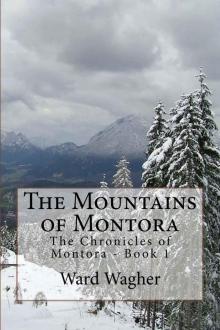 The Mountains of Montora (The Chronicles of Montora Book 1)
The Mountains of Montora (The Chronicles of Montora Book 1)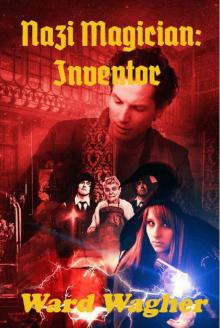 Nazi Magician: Inventor
Nazi Magician: Inventor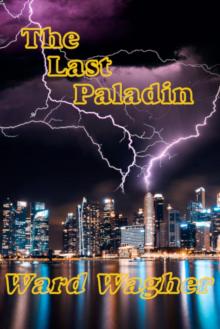 The Last Paladin
The Last Paladin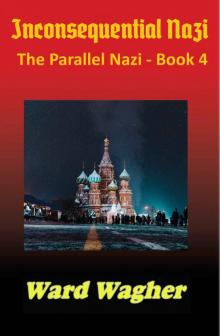 Inconsequential Nazi
Inconsequential Nazi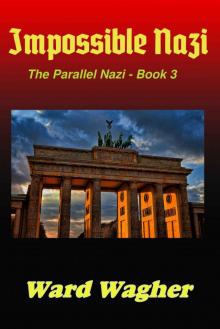 Impossible Nazi
Impossible Nazi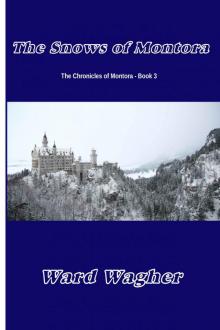 The Snows of Montora (The Chronicles of Montora Book 3)
The Snows of Montora (The Chronicles of Montora Book 3)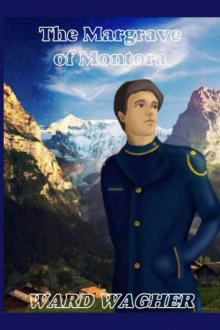 The Margrave of Montora (The Chronicles of Montora Book 2)
The Margrave of Montora (The Chronicles of Montora Book 2)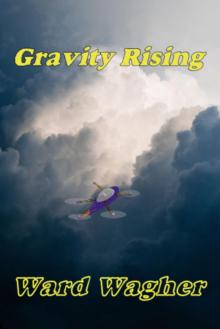 Gravity Rising (The Parallel Multiverse Book 2)
Gravity Rising (The Parallel Multiverse Book 2)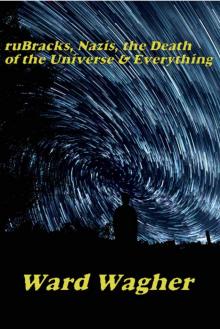 ruBracks, Nazis, the Death of the Universe & Everything (The Parallel-Multiverse Book 1)
ruBracks, Nazis, the Death of the Universe & Everything (The Parallel-Multiverse Book 1)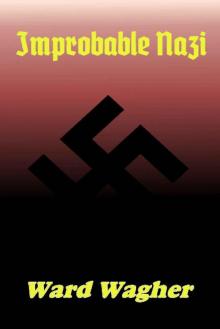 Improbable Nazi (Parallel Nazi Book 2)
Improbable Nazi (Parallel Nazi Book 2)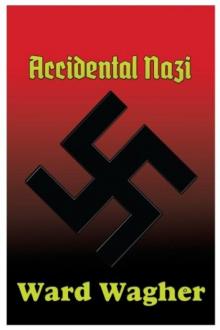 Accidental Nazi
Accidental Nazi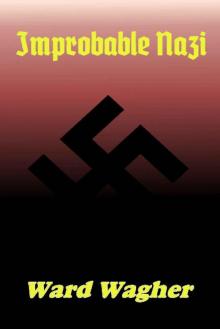 Improbable Nazi
Improbable Nazi